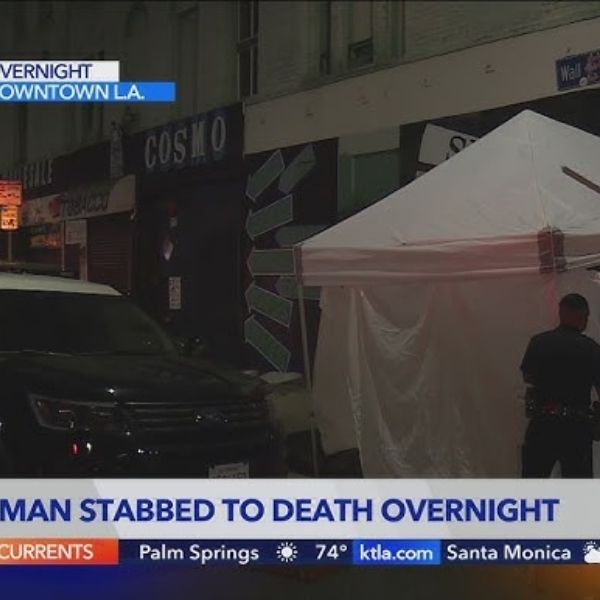The case of Talia C. Teneyuque, a 32-year-old Michigan woman, has sparked nationwide outrage after prosecutors accused her of using food stamp benefits to buy baking ingredients — a violation that could send her to prison for up to 10 years.
Prosecutors allege that between January 2022 and September 2023, Teneyuque used her EBT Bridge Card to purchase groceries such as flour, sugar, eggs, and butter, which she later turned into baked treats and sold online. Because she resold items purchased with food stamps, officials say she violated federal SNAP regulations prohibiting the resale of food bought with benefits.
If convicted, Teneyuque faces a $250,000 fine and a decade-long prison term. The story, first shared by @RaphouseTV, has ignited heated discussions about race, class, and fairness in welfare enforcement, with many calling the case “a punishment for being resourceful.”
A $1,000 Threshold Turns a Hustle Into a Felony
Prosecutors claim Teneyuque’s alleged fraud exceeded $1,000, enough to qualify as a felony under Michigan and federal SNAP laws. Food stamps are meant for personal consumption, and any resale of purchased items is classified as “trafficking.”
Teneyuque was arraigned in Saginaw County Court and released on a $50,000 bond after rejecting a plea deal earlier this month — signaling her intent to fight the charge in court.
Courtroom Image Sparks Online Backlash
A photo of Teneyuque standing beside her attorney in court has become a viral symbol of systemic inequality. Commenters compared her calm demeanor with the severity of her potential punishment.
“They’re trying to lock up a woman for making cupcakes, while billionaires steal millions in welfare money,” one X user wrote.
Critics argue that the case highlights how minor infractions by working-class individuals face harsher scrutiny than large-scale financial scandals involving the wealthy.
Federal Rules Leave No Gray Area
Under 7 U.S.C. § 2024, SNAP benefits must be used solely for household food consumption. Using them to produce goods for resale is considered “trafficking,” even if done on a small scale.
Because her alleged misuse exceeded $1,000, Teneyuque faces the same felony category as large SNAP trafficking cases. Yet, data from the USDA shows fraud accounts for less than 1% of the $120 billion program, while administrative errors make up about 11%. Critics say enforcement often targets individuals rather than large-scale fraud.
Public Outcry Over Unequal Justice
The case went viral after comparisons to high-profile welfare scandals like Brett Favre’s $1.1 million Mississippi welfare case, which resulted in no criminal charges.
“Ten years for selling cupcakes while Brett Favre keeps his golf schedule? Make it make sense,” one post read.
Users on X and TikTok launched hashtags like #FreeTalia and #WelfareJustice, calling her prosecution an example of how poverty is criminalized in America.
A System That Punishes Hustle
Many see Teneyuque’s case as a story of entrepreneurship and survival amid inflation and economic hardship. With food prices up more than 25% since 2019, countless Americans have turned to side hustles.
Supporters argue that Teneyuque’s actions show ambition, not deceit. “She didn’t scam anyone — she worked, she baked, she sold,” one viral post said. “The system wants poor people dependent, not successful.”
Unequal Enforcement in Welfare Scandals
The outrage deepened after comparisons with larger fraud cases:
-
Brett Favre allegedly redirected $1.1 million in welfare funds — no jail time.
-
A USDA employee fraud ring involving $66 million remains under trial.
-
A TikTok influencer teaching EBT scams worth $35,000 wasn’t charged with a felony.
By contrast, Teneyuque’s case involves less than $2,000 in ingredients. For many, this shows who the system protects — and who it punishes.
What’s Next
No trial date has been set, but Teneyuque’s legal team appears ready to argue lack of criminal intent, possibly claiming the goods were made for personal or community use. If convicted, she could face prison time and a lifetime SNAP disqualification.
Supporters are urging Michigan lawmakers to reform food stamp rules, calling her case “a criminalization of poverty, not fraud.”
“She Was Just Trying to Eat” — Social Media Reacts
Public sentiment overwhelmingly favors Teneyuque:
-
“Ten years? But that rich guy that harmed a 12-year-old got six months.” — @HurtsonaPerc
-
“Sounds like a genius entrepreneur to me. This legal system is a joke.” — @ace1yoda
-
“She flipped food stamps into a bakery — that’s innovation, not fraud.” — @yesmoresalt
-
“This country punishes the broke for surviving.” — @imnormalguys
A few defended the prosecution, noting SNAP’s intent to feed families, not fund businesses. But most see the case as an example of selective justice — where poor, Black, and working-class individuals face harsher penalties.
Broader Questions on Race, Poverty, and Policy
While prosecutors haven’t cited racial bias, data from the USDA Office of Inspector General shows that Black SNAP recipients are investigated disproportionately. Black women make up 12% of recipients but 32% of prosecutions for food stamp fraud nationwide.
For many, Teneyuque’s story has become a symbol of systemic inequality — a mirror of how America defines crime, wealth, and worth.
As one viral tweet summed it up:
“When poor women make money, it’s fraud. When rich men do, it’s capitalism.”
This article has been carefully fact-checked by our editorial team to ensure accuracy and eliminate any misleading information. We are committed to maintaining the highest standards of integrity in our content.











Leave a Comment